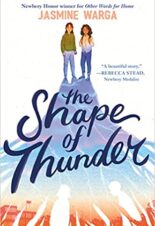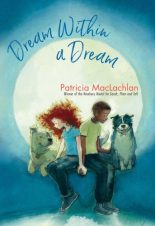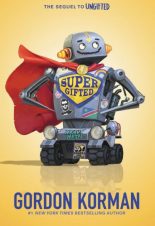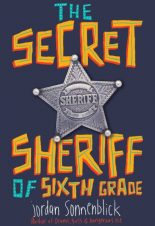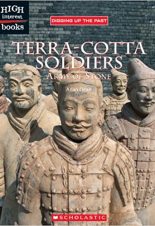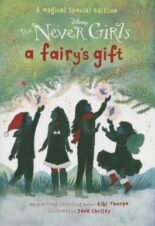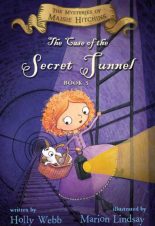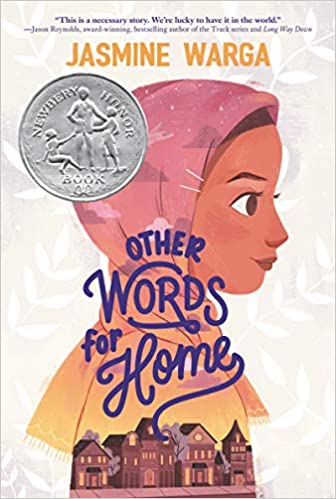
Buy This Book
Other books by Jasmine Warga
“I am choosing not to be afraid,” Jude. –Other Words for Home
Other Words for Home
by Jasmine Warga
AR Test, Diverse Characters, Must Read, Teaches About Culture
8+
Score
5.3
368
When 12-year-old Jude is forced to leave her home country of Syria with her pregnant mother, she loses her friends, family, and her home overnight. Suddenly, Jude has left behind the only place she’s ever known and moves to Cincinnati, Ohio to live with her uncle.
Adapting takes time. People in America talk fast and talk in ways Jude doesn’t understand. The English Jude learned back home is not enough to keep up, causing her to struggle in school and making it difficult to make friends. Americans dress differently too, and many of them don’t understand Muslim customs. Meanwhile, the constant stress of her mother’s pregnancy and being separated from her home, father, and brother weigh heavily on Jude’s mind. Yet the hardest part about adapting to America is figuring out who she is in this new place. In America, Jude must redefine herself in ways she never imagined. She relies on the last words her brother spoke to her: “Be brave.”
Jude dives headfirst into making her new life work. She studies hard, develops relationships with new friends, and even tries out for her school musical. Yet Jude becomes torn between her past and present identities when a terrorist attack leads to an increased amount of hate crimes against Middle Eastern people in her town. Jude doesn’t understand why innocent people should be held responsible for the crimes of a few. Jude says, “Americans expect bombs to go off in Lebanon, in Pakistan, in my beloved Syria, but not in France, Britain, Canada. . . Americans think it’s normal for there to be violence in places where people like me are from, where people like me and people who look like me live. . . That they all see people like me and think violence, sadness, war.” Jude concludes that many people are quick to make generalizations about things they don’t understand. However, instead of getting upset, Jude decides to prove them wrong. She decides to truly be “seen.”
Things start to look up when Jude scores a role in her school play and her new baby sister is born. Plus, Jude is able to talk with her brother for the first time in nearly a year. Eventually, Jude finds where she fits in, confidently pursues her goals, and is filled with hope for the future when her family can be reunited again. The book ends with Jude standing in the spotlight on the stage, ready to be seen.
Other Words for Home is a story about a girl who, despite having her life uprooted, remains optimistic for a future where she can thrive. It is written in free verse, but the story is still easy to understand. As a narrator, Jude is humorous and direct which makes her story entertaining and powerful. American readers will find the events shocking because they will see their culture through the eyes of someone else. While people may know the facts and physical struggles of immigrant families, they rarely get to see the true emotions behind the people who endure these trials. Even though some parts of the story may be uncomfortable to read, Other Words for Home is a must-read because the story will give readers a better understanding of the life of immigrants in America.
While the content of Other Words for Home can seem political, there is never a time when the reader doesn’t identify with Jude. She feels like an outcast who wants others to see her for who she really is – not the labels that society puts on her. This is especially relatable to middle-grade readers, but is also relatable to anyone who wishes the world wasn’t so quick to judge. One of the most powerful moments in the story is when Jude bravely declares, “I am choosing to not be afraid” in the face of society’s prejudice.
One theme that is highlighted throughout the story is the importance of not judging people based on their race. Jude is an immigrant, a Muslim, and a foreigner. Others often make assumptions about Jude and these perceptions alter how she is able to adapt to American society. At first, Jude is unsure of how to navigate these labels, but she slowly comes to resist them and stays true to herself. In the beginning of the story, Jude is torn over which place – Syria or America – is her home, but she comes to realize that home is a feeling rather than a place. Home is among her friends and family, who support her dreams and see Jude as her true self.
Sexual Content
- When Muslim girls get their first period, they come of age and cover their hair with a headscarf. Fatima, one of Jude’s friends, is the first to get her period. Jude says Fatima “is one of the first girls in our grade to cover. She has bled between her legs.”
- Jude says she wasn’t supposed to watch the movie Practical Magic or Pretty Woman because “witches and prostitutes scare Mama.”
- Jude and her friend, Sarah, watch a show with kissing. Jude describes how Sarah “doesn’t seem surprised by all the kissing on the show. I wonder if she has been kissed herself but I’m not brave enough to ask her.”
- Jude gets her first period. “I look at the bloodstained spots that appeared on [the] sheets overnight. . . then I saw the slow, thick, crimson drip between my legs, and I felt the dense cramp of my stomach and I knew.”
Violence
- Jude sees a picture in a newspaper of bloodied civilians. “The front page is filled with awful pictures of people who are bloodied and cowering together.”
- Jude’s brother, Issa, is at his apartment with Jude and his roommates when police raid it. “There is shouting, glasses knocked to the ground, bodies shoved against walls, the sounds of handcuffs clicking, more shouting.” Neither of them is injured. The story doesn’t say what happens to the other people.
- Layla tells Jude about a terrorist attack. “And then she tells me: about the explosion, about the blood in the streets, and the horror and the death.” These are the only details given about the incident.
- There are three instances of hate crimes. No one is injured. In the first instance, Layla’s family’s shop is defaced when someone writes “terrorists” on the storefront. In the second, a man follows Jude and tells her to “go back to where you came from.” Lastly, a woman tells Jude to remove her hijab.
Drugs and Alcohol
- None
Language
- Jude’s friend, Miles calls the man who told her to “go back to where [she] came from” a jerk.
Supernatural
- None
Spiritual Content
- Jude, her family, and a few of her friends are Muslim. There are references to Muslim culture such as the Quran, mosques, and Allah (God). Occasionally Jude brings up Arabic proverbs.
- Jude says that there are men who “manipulate the Quran to say things that the rest of us know it does not say.”
- Jude mentions an Arabic myth. “I felt like the woman from the Arabic myth who can see so far into the distance that she can see the future.”
- Jude says, “Allah would want us to have faith.” When she receives a postcard from a friend after a long time of not hearing from her, Jude says, “[This] is the type of thing that makes me believe in Allah and the grace of the universe.”
- Jude and her family visit a mosque together.
Other books by Jasmine Warga
“I am choosing not to be afraid,” Jude. –Other Words for Home
Latest Reviews
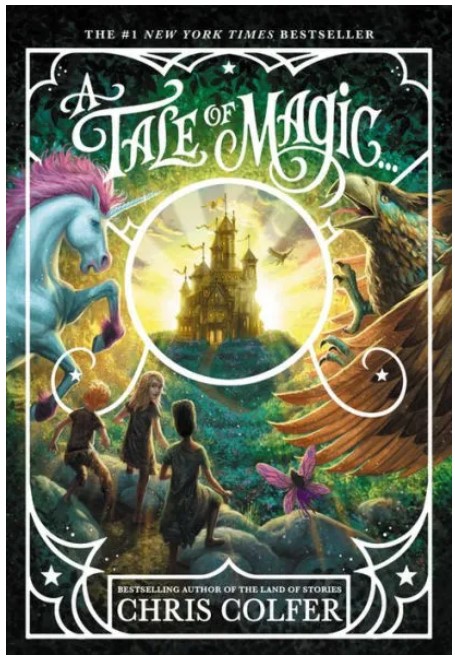
A Tale of Magic

The Immortal Fire

Grace Hopper: Queen of Computer Code

Girls Who Code: Learn to Code and Change the World

Alone

Friends Fur-Ever

Harry Houdini: A Magical Life

The Greedy Gremlin

Hoop Genius: How a Desperate Teacher and a Rowdy Gym Class Invented Basketball

